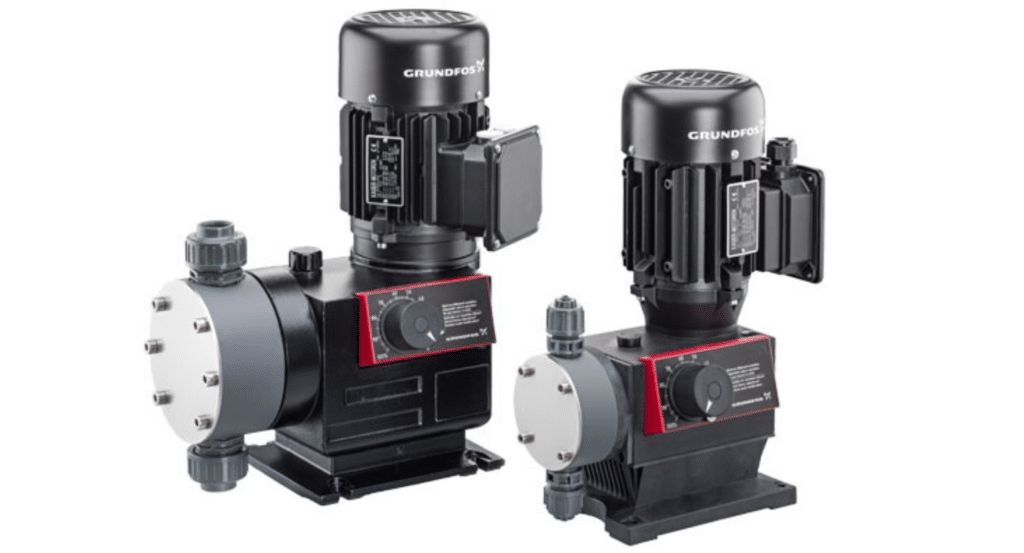Types of Pumps Used in the Pharmaceutical Industry
The pharmaceutical industry is expanding, which means the tools and technology used within the industry must do the same. One way pharmaceutical companies are keeping up with the changing times is by ensuring that their processing equipment continues to contribute to efficient, contamination-free production.
Equipment selections made by medicine and drug manufacturers, as well as biotech, biopharmaceutical, and life science operations, are done to improve processing capabilities, which improves their ability to overcome common production challenges in a repeatable process.
Pump selection is the first step for pharmaceutical companies trying to achieve optimal processing. In this article, we will examine the various types of pumps used in the pharmaceutical industry and how they contribute to the growing sector.
Why industrial pumps are important to the pharmaceutical industry
Industrial pumps are used in various pharmaceutical processes to transport fluids through tubing to process equipment. They not only must be able to prevent contamination and maintain hygiene and sanitary standards, but they also must ensure that the drugs and medications don’t lose their efficacy after going through the various processes.
 Industrial pumps play a much bigger role in this process than you may think. Without efficient pumps, manufacturers will not be able to achieve the desired results in the drying, distillation, sterilization, degassing, and crystallization processes. As a result, consumers will be unable to obtain medications.
Industrial pumps play a much bigger role in this process than you may think. Without efficient pumps, manufacturers will not be able to achieve the desired results in the drying, distillation, sterilization, degassing, and crystallization processes. As a result, consumers will be unable to obtain medications.
When choosing a pump for a pharmaceutical facility, the cost comes second to the quality of the pump’s construction and design. The pump’s dependability is critical, as a faulty pump can cost a company thousands of dollars in non-compliant pharmaceuticals. If it doesn’t work properly, it can even introduce bacteria into the medicine.
To make matters even more complicated, it’s worth noting that the pharmaceutical industry uses different grades of water depending on the result. These are defined as bulk waters produced on-site or packaged waters produced in highly controlled environments.
Pharmaceutical pumps are available in a variety of types and sizes. Let’s take a look at some common pumps that are used in the pharmaceutical industry below.
Lift pumps
As their name suggests, lift pumps lift water from a reservoir or storage tank’s surface and transport it to the treatment processing section. Lift pumps are large pumps that are capable of moving a lot of water but operate at a low discharge pressure, focusing on volume rather than water pressure.
Arterial pumps
Arterial pumps are used to treat water and are designed to feed the artery system, which is the main supply to your home. These pumps must be capable of rapidly increasing pipe pressure.
Booster pumps
Booster pumps are additional pumps that are used to boost flow rate. They are used in tandem with other types of pumps to help satisfy higher flow requirements. Booster pumps can be used at a treatment plant and along the pipes, to help maintain a safe level of pressure.
Centrifugal pumps
Centrifugal pumps are the most advanced industrial pumps in the pharmaceutical industry, and they can be used in a variety of applications. Centrifugal pumps are highly efficient, have a simple design and operation, and are generally less expensive than other pump types. They are large amounts of material, as well as moving it from one location to another with ease.
Recommended Read What Is a Progressive Cavity Pump?
Lobe pumps
Lobe pumps have exceptional sanitary properties, as well as high efficiency and corrosion resistance, and are made up of rotating lobes that form massive pumping chambers. This allows the pump to easily handle small solids, pastes, and other liquids. Even if the pressure changes, the flow remains constant because the lobes keep turning.
Diaphragm Pump
Diaphragm pumps are capable of handling a wide range of pressure changes and liquid flow rates. Diaphragm pumps operate in tandem with water growth, allowing for increased industrial activity in the area. Most importantly, it is resistant to corrosion, as Teflon is used on the inner surface, which provides high flexibility, precise mechanics, and self-priming capability.
Chemical Pump
Chemical pumps are capable of delivering consistent performance and mechanical dependability. This pump can transfer water and other liquids such as oils, solvents, and other chemicals and can also deal with aggressive and corrosive liquids.
Recommended Read What Are Industrial Pump Skid Systems?
Contact C&B Equipment Today to Find the Best Pump for Your Business
There is a wide range of pumps available for many of the applications required in the pharmaceutical industry. If your company is looking to improve its pharmaceutical processes by upgrading your pumps, C&B Equipment can help.
At C&B Equipment, engineered solutions and reliable and efficient products are at the heart of everything we do. Our extensive and comprehensive range of industrial pumps provides your pharmaceutical business with the best option.
We provide customers with consistent expertise and attention to efficient engineering and design, equipment uptime, and performance. If you’re looking for the most powerful and efficient pumps for your pharmaceutical business, we can advise you on the best industrial pump for your specific applications.
Take a look at the industrial pumps we have to offer!
or
Take a look at our equipment maintenance, repair, and installation services!
